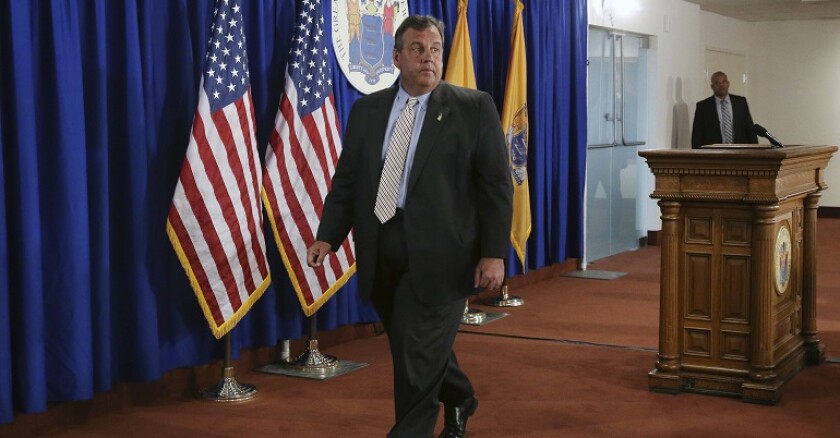Better Late Than Never
They may be late, but both Maine and New Jersey finally have budgets for fiscal 2018 after shutting down their respective governments for three days.Early Tuesday, New Jersey Gov. Chris Christie signed a $34.7 billion budget agreement and ended a shutdown. That same day, Maine’s shutdown wrapped up when Gov. Paul LePage signed a $7.1 billion budget. The deal eliminated a lodging tax increase opposed by LePage in exchange for allocating an additional $162 million to public education.
Delaware also reached a budget deal early Sunday morning. Gov. John Carney signed a $4.1 billion budget that preserved funding for nonprofits, public health programs and schools by raising taxes on real estate transfers, tobacco and alcohol.
The Takeaway: A whopping 11 states started their fiscal 2018 this month without a budget deal, an unusually high number that reflects the growing divisiveness of tax and fiscal policy. Be it dealing with budget deficits or juggling a demand to bring funding for services back to pre-recession levels, more and more of these conflicts are resulting in statehouse stalemates.
In addition to the deals in Delaware, New Jersey and Maine, both Michigan and Wisconsin are also expected to have budgets in place this week. That will bring the number of governments without a spending plan down to six (Connecticut, Illinois, Massachusetts, Oregon, Pennsylvania and Rhode Island).
And Then There’s Illinois
Leaders in the Land of Lincoln have passed their first budget in more than two years. Under the threat of being the only state downgraded to junk status, Republican legislators broke with Gov. Bruce Rauner to approve an income tax hike and pass a $36 billion spending plan. The plan increases personal income taxes from 3.75 percent to 4.95 percent and would bring in an extra $5 billion in revenue.Rauner celebrated his office’s independence from the legislature-backed budget by promptly vetoing it on the 4th of July. But on Thursday, the Democratic-led legislature overrode that veto.
Even so, Moody’s Investors Service warned that it could still downgrade the state into junk status because the spending plan does not address ways to raise money for the state’s more than $15 billion in unpaid bills or a way to pay down its roughly $100 billion unfunded pension liability.
The Takeaway: The Illinois Legislature's override of Rauner's veto marks the second time this year that a battered lawmaking body has defied a governor dead set on cutting taxes. In June, Kansas’ Republican-led legislature rolled back controversial 2012 income tax cuts championed by Gov. Sam Brownback after gaining the votes to override his veto. Years of dealing with budget shortfalls and constituents angry over service cuts helped convince lawmakers to abandon the tax cut experiment.
That same weariness helped lawmakers in Illinois reach a deal as a cash shortage threatened a partial government shutdown and an unprecedented credit rating downgrade into junk status.
Alternative Investments, Not a Great Alternative After All
Pension plans on average have nearly tripled the amount of money they've directed toward so-called alternative investments over the past decade, according to the Center for Retirement Research at Boston College. This shift to private equity, hedge funds, real estate and commodities was driven by a desire for higher returns and to hedge against the stock market’s volatility. But researchers have found the trend has produced the opposite result.Between 2005 and 2015, pension plans went from investing on average 9 percent of their assets in alternative investments to 24 percent. Researchers found that for every 10 percent increase in such investments, pension plans saw returns between 0.32 to 0.44 percent lower. The main culprit for the bleaker performance is hedge funds, which the brief notes have experienced low returns relative to other asset classes since the 2008 financial crisis.
Alternative investments also don’t appear to protect against the stock market’s volatility. If anything, researchers conclude, they contribute to it.
The Takeaway: The analysis finds that plans of all types are drawn to alternative investments, and identifies those that are most invested in alternatives. The troubled Dallas Police & Fire fund is by far the most leveraged with two-thirds of its assets in alternatives. For comparison, the average plan has about one-quarter invested in alternatives.
Researchers note that more research on the effects of alternatives should be done on individual plans.
To read this regularly, subscribe to "The Week in Public Finance" newsletter for free.
*This has been updated to reflect the Illinois Legislature's override of Gov. Rauner's veto.









